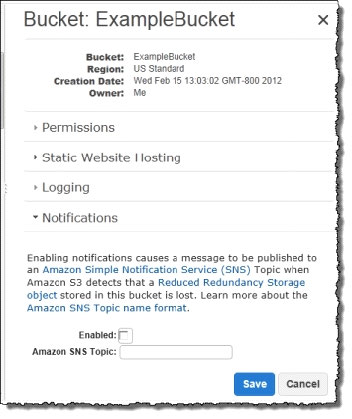Your department creates regular analytics reports from your company's log files All log data is collected in Amazon S3 and processed by daily Amazon Elastic MapReduce (EMR) jobs that generate daily PDF reports and aggregated tables in CSV format for an Amazon Redshift data warehouse. Your CFO requests that you optimize the cost structure for this system.
Which of the following alternatives will lower costs without compromising average performance of the system or data integrity for the raw data?
A. Use reduced redundancy storage (RRS) for all data In S3. Use a combination of Spot Instances and Reserved Instances for Amazon EMR jobs. Use Reserved Instances for Amazon Redshift.
B. Use reduced redundancy storage (RRS) for PDF and .csv data in S3. Add Spot Instances to EMR jobs. Use Spot Instances for Amazon Redshift.
C. Use reduced redundancy storage (RRS) for PDF and .csv data In Amazon S3. Add Spot Instances to Amazon EMR jobs. Use Reserved Instances for Amazon Redshift.
D. Use reduced redundancy storage (RRS) for all data in Amazon S3. Add Spot Instances to Amazon EMR jobs. Use Reserved Instances for Amazon Redshift.
Which of the following alternatives will lower costs without compromising average performance of the system or data integrity for the raw data?
A. Use reduced redundancy storage (RRS) for all data In S3. Use a combination of Spot Instances and Reserved Instances for Amazon EMR jobs. Use Reserved Instances for Amazon Redshift.
B. Use reduced redundancy storage (RRS) for PDF and .csv data in S3. Add Spot Instances to EMR jobs. Use Spot Instances for Amazon Redshift.
C. Use reduced redundancy storage (RRS) for PDF and .csv data In Amazon S3. Add Spot Instances to Amazon EMR jobs. Use Reserved Instances for Amazon Redshift.
D. Use reduced redundancy storage (RRS) for all data in Amazon S3. Add Spot Instances to Amazon EMR jobs. Use Reserved Instances for Amazon Redshift.
